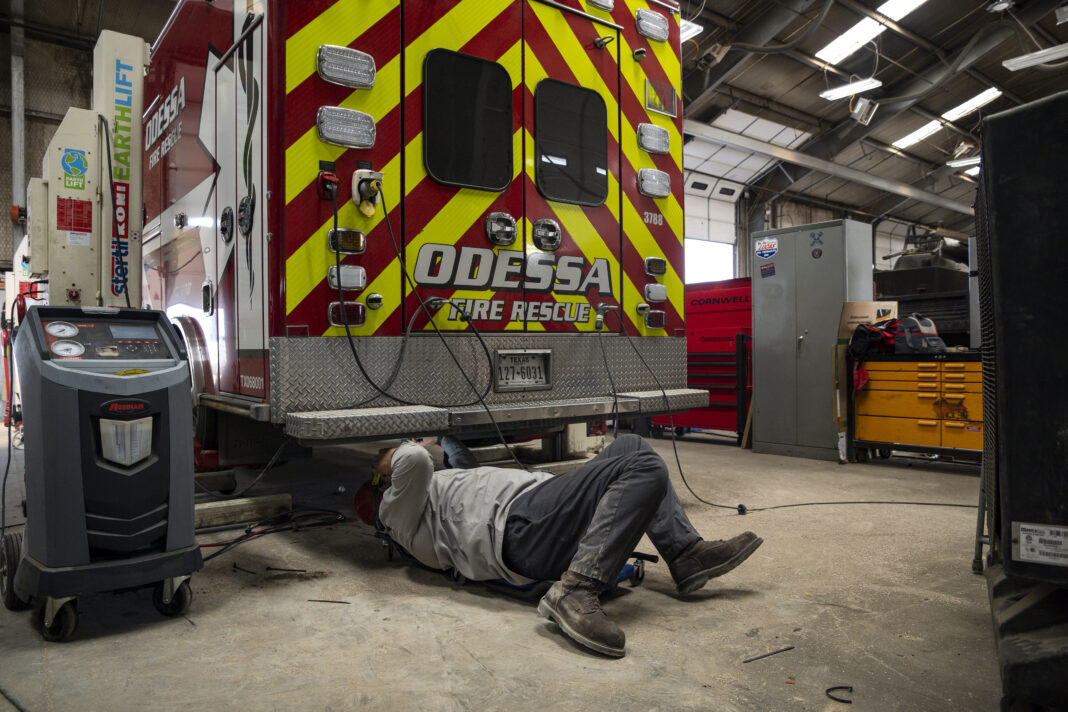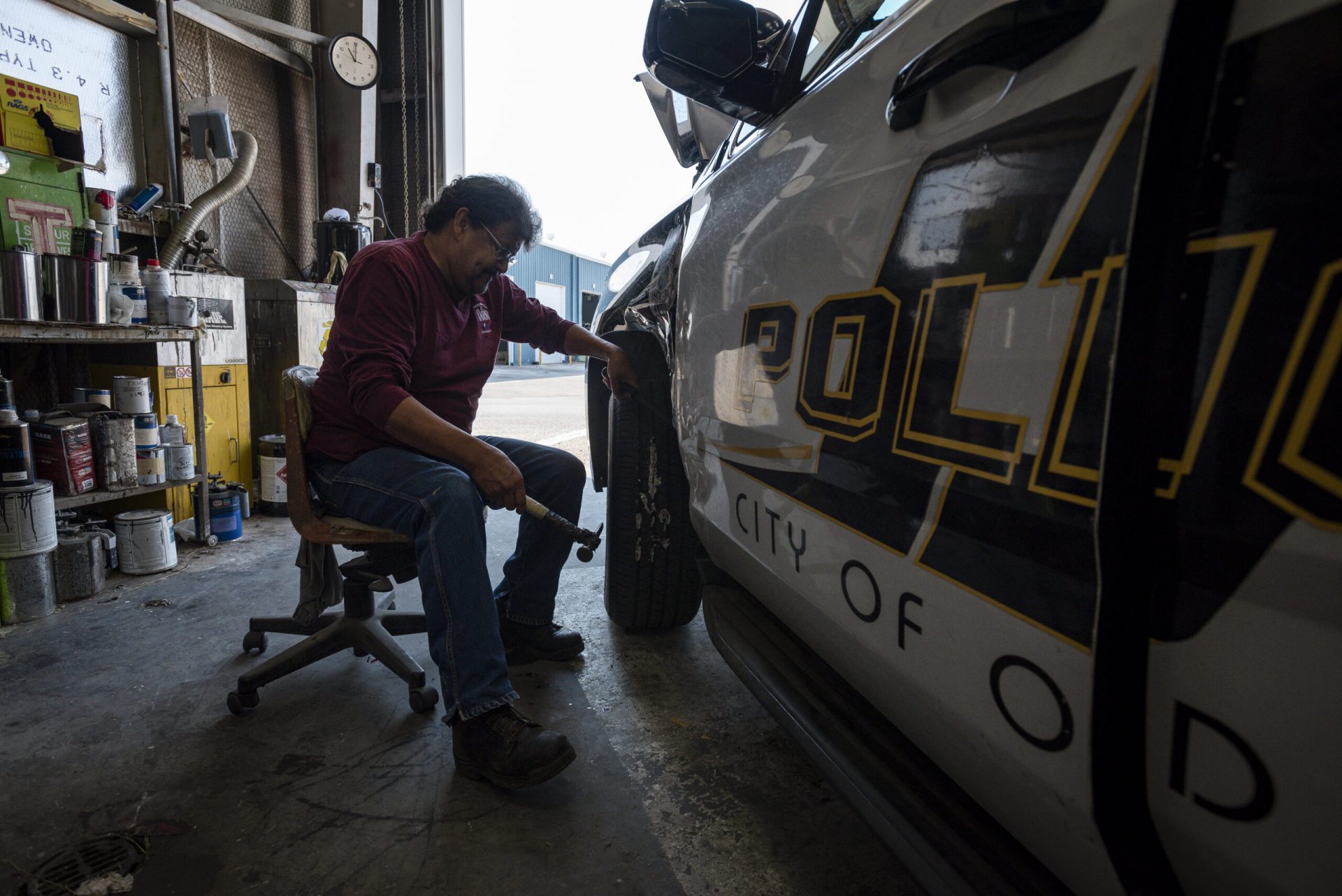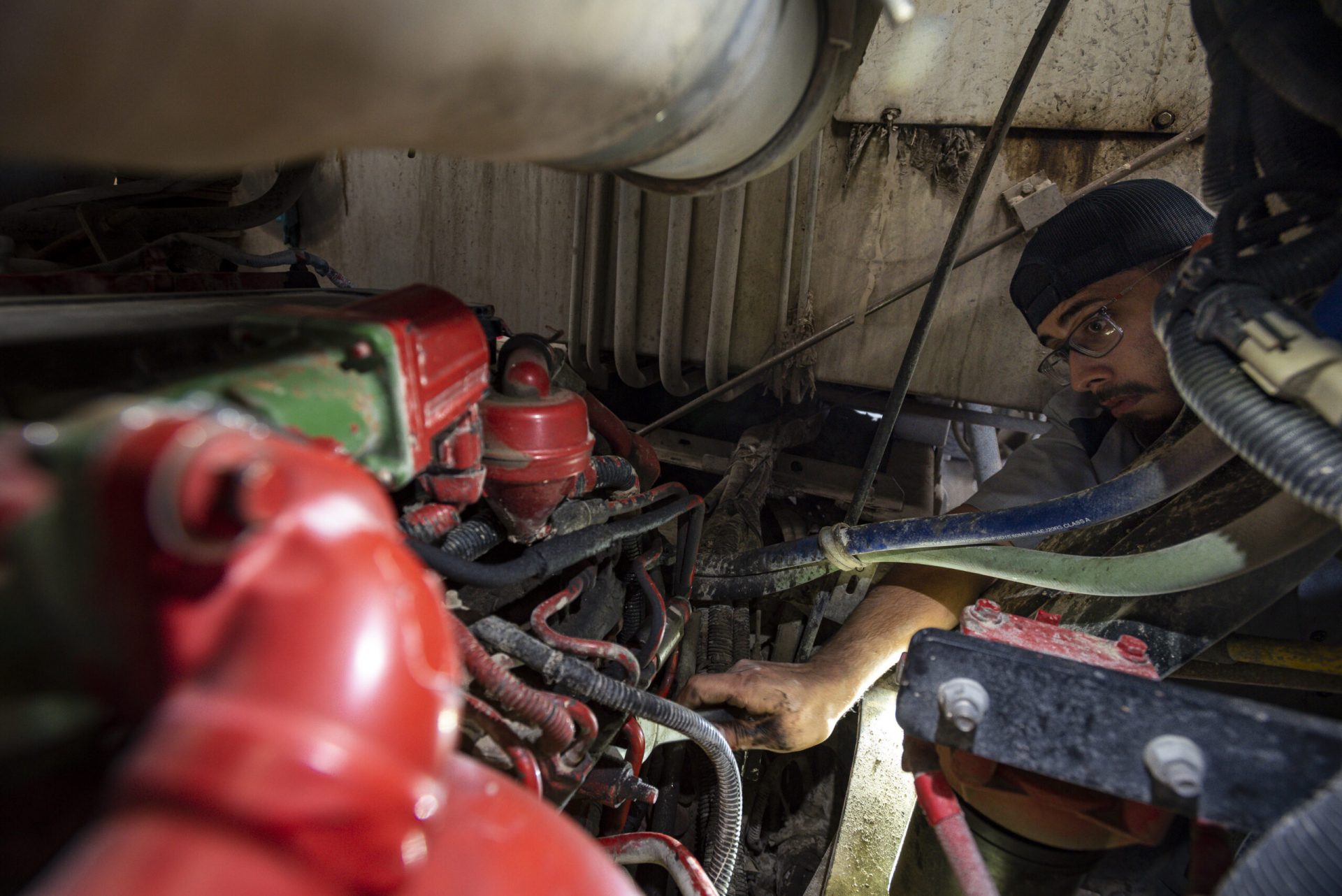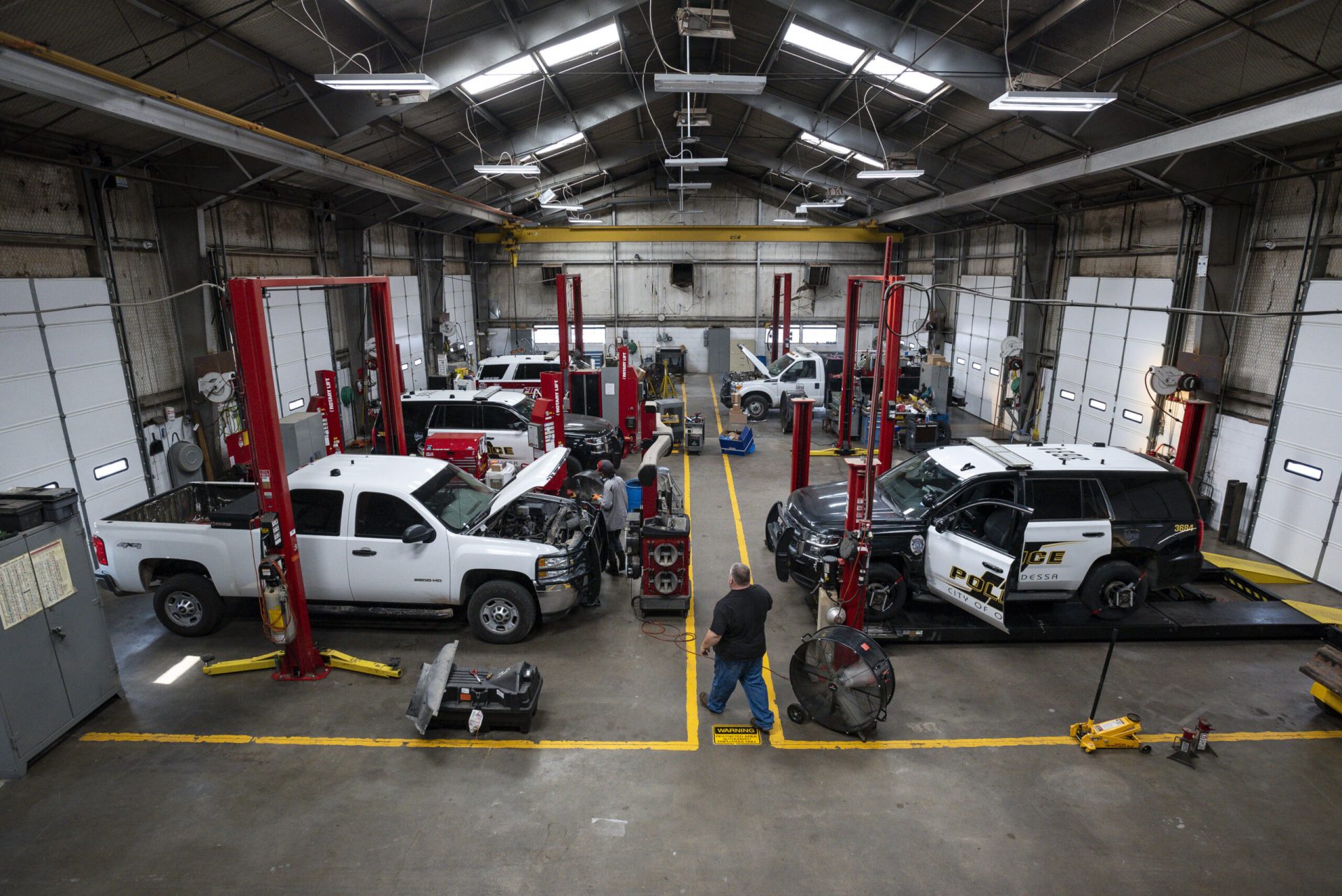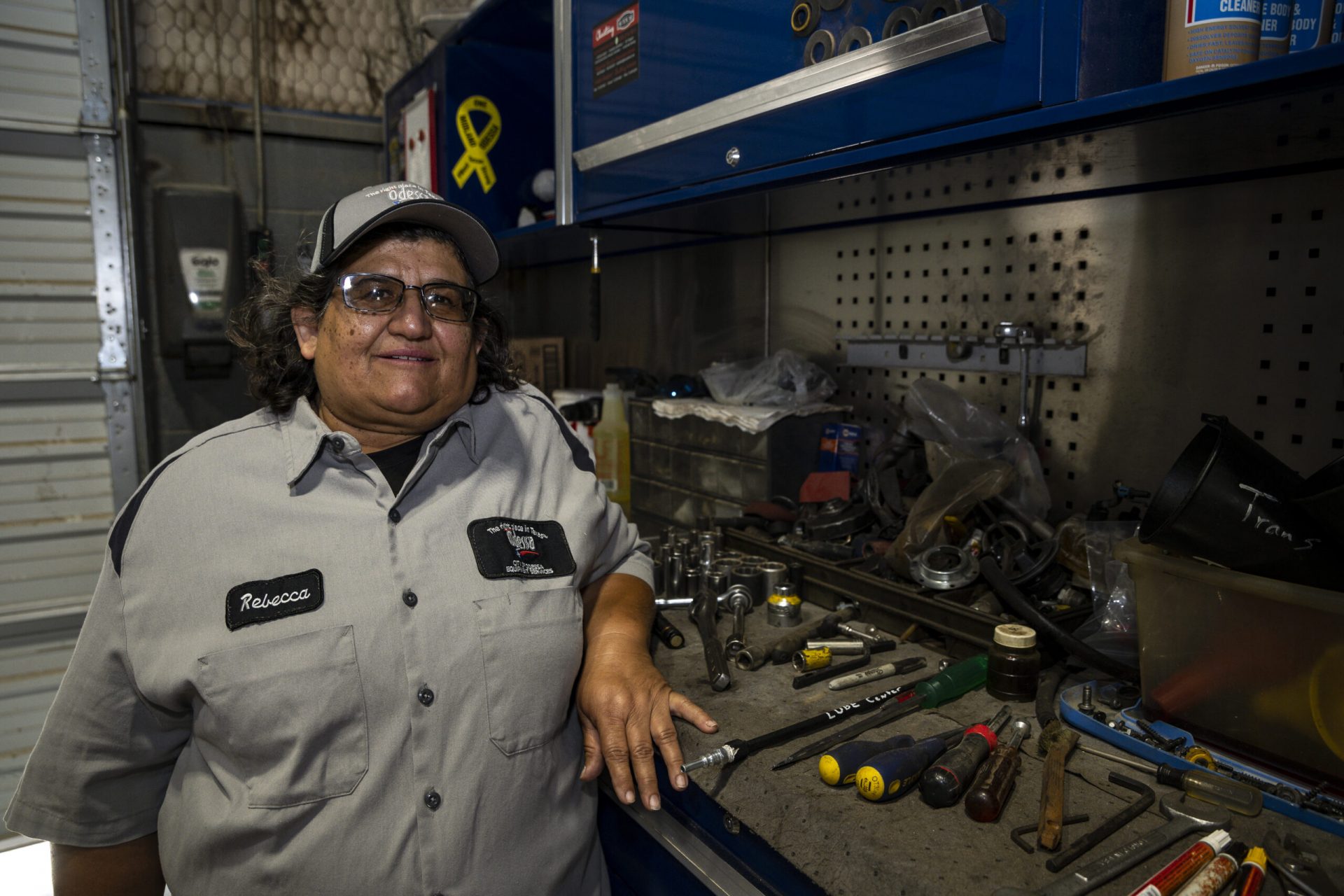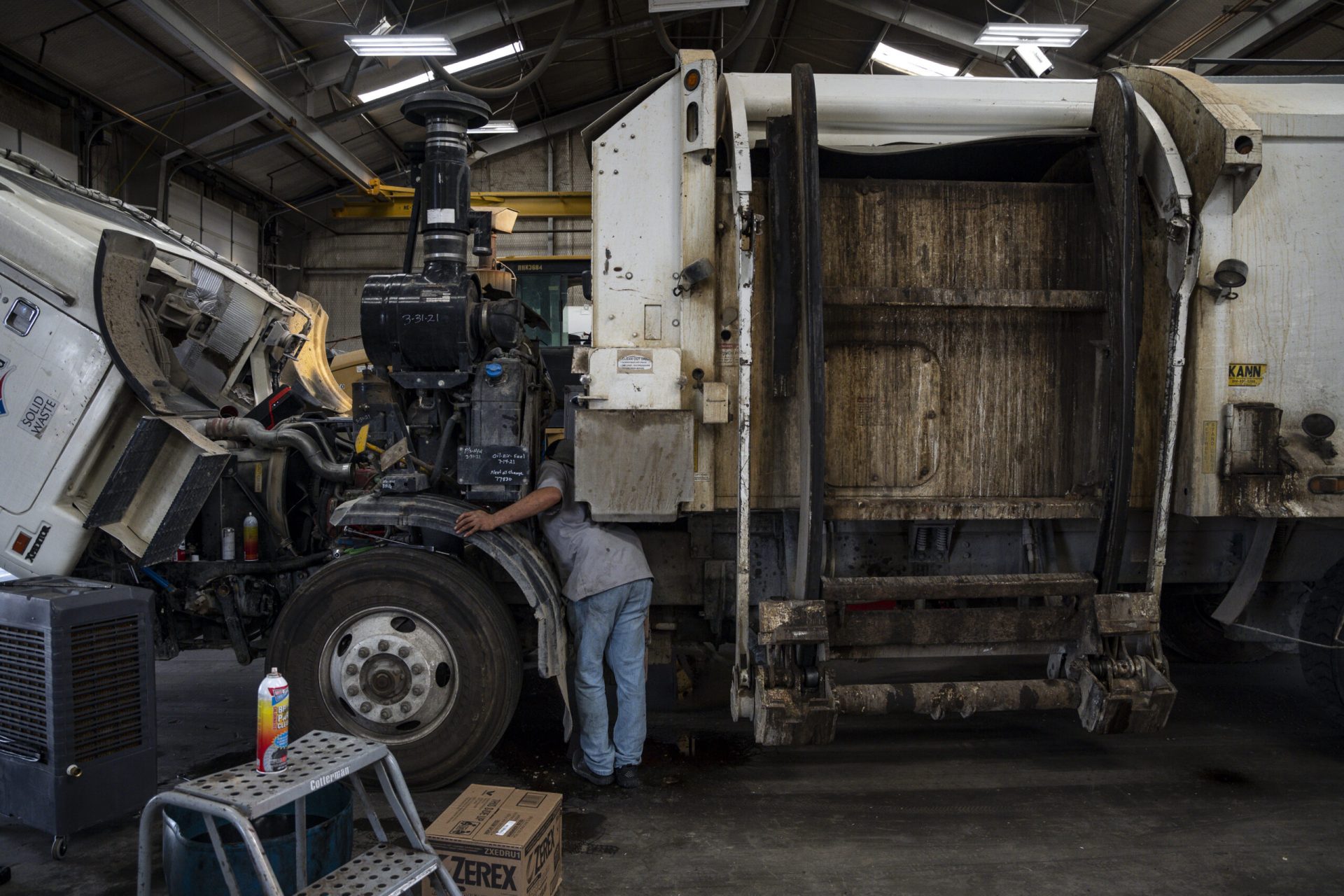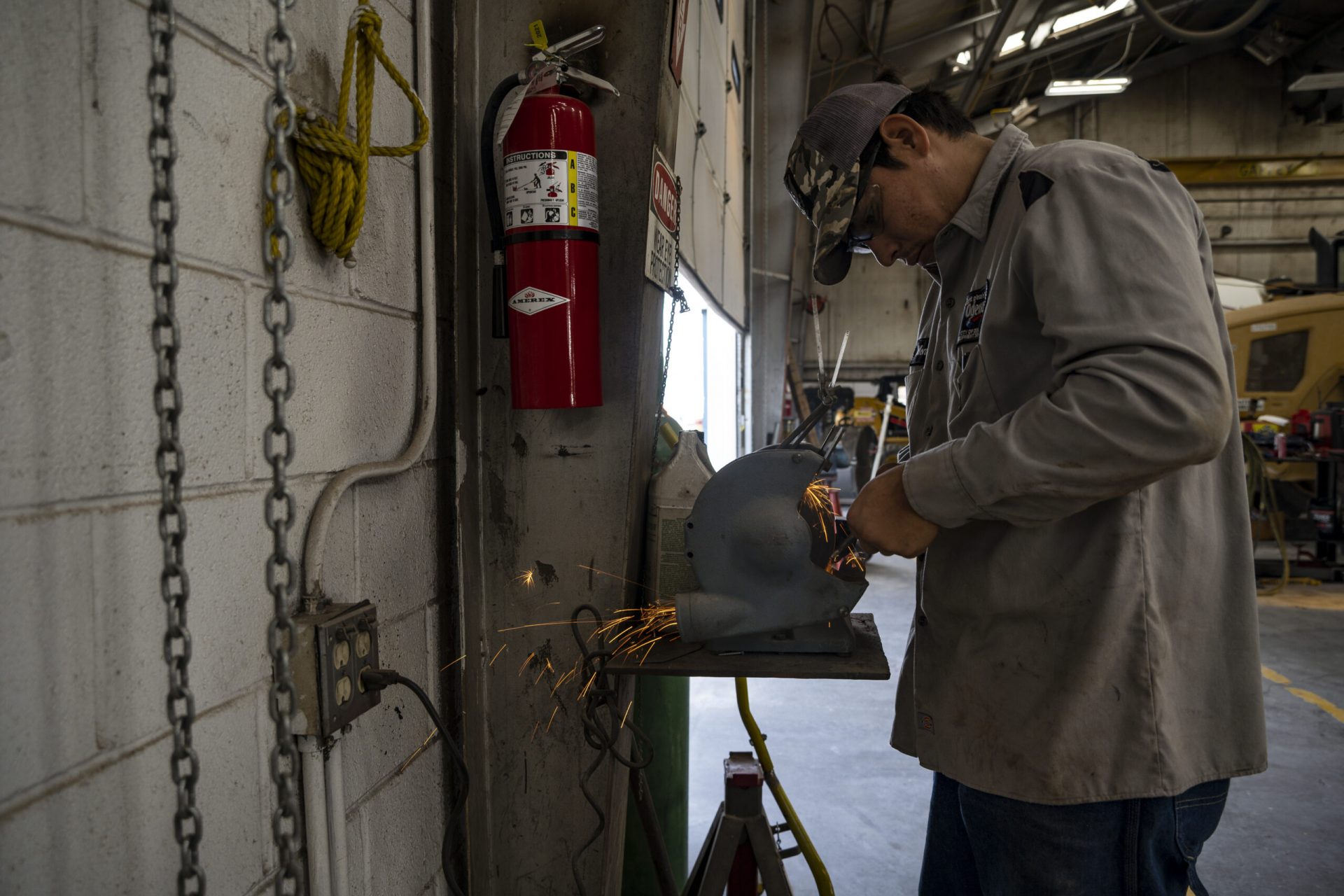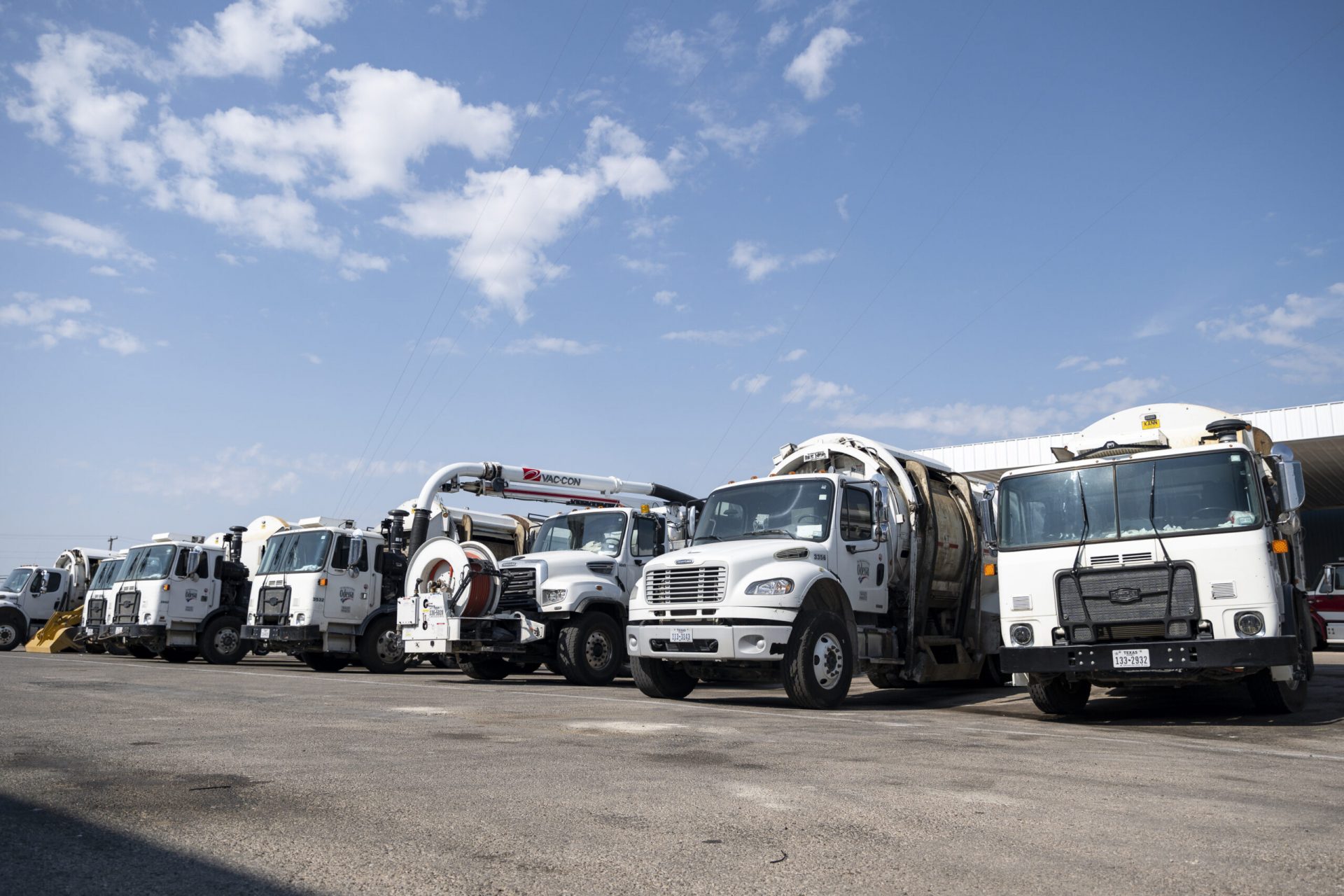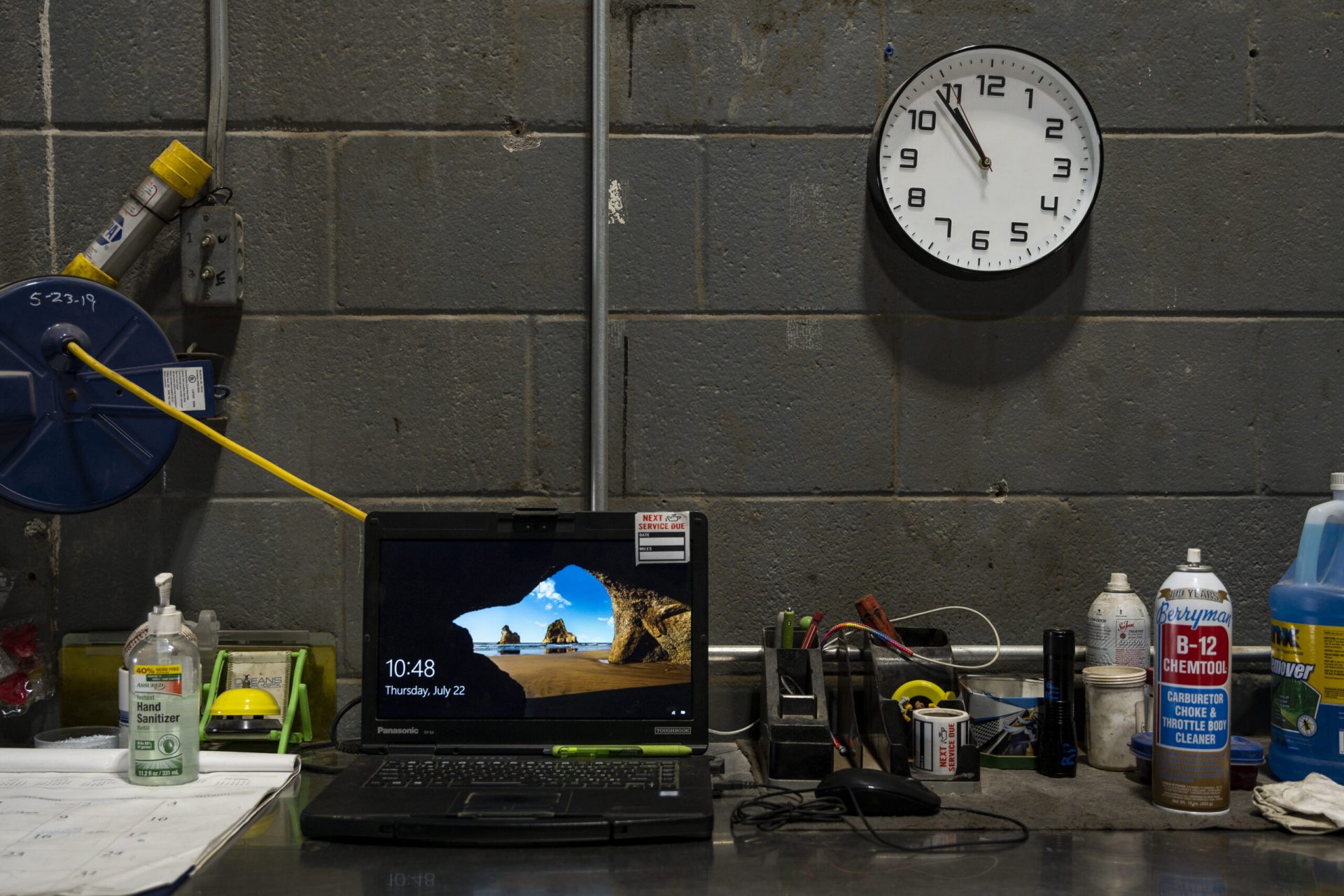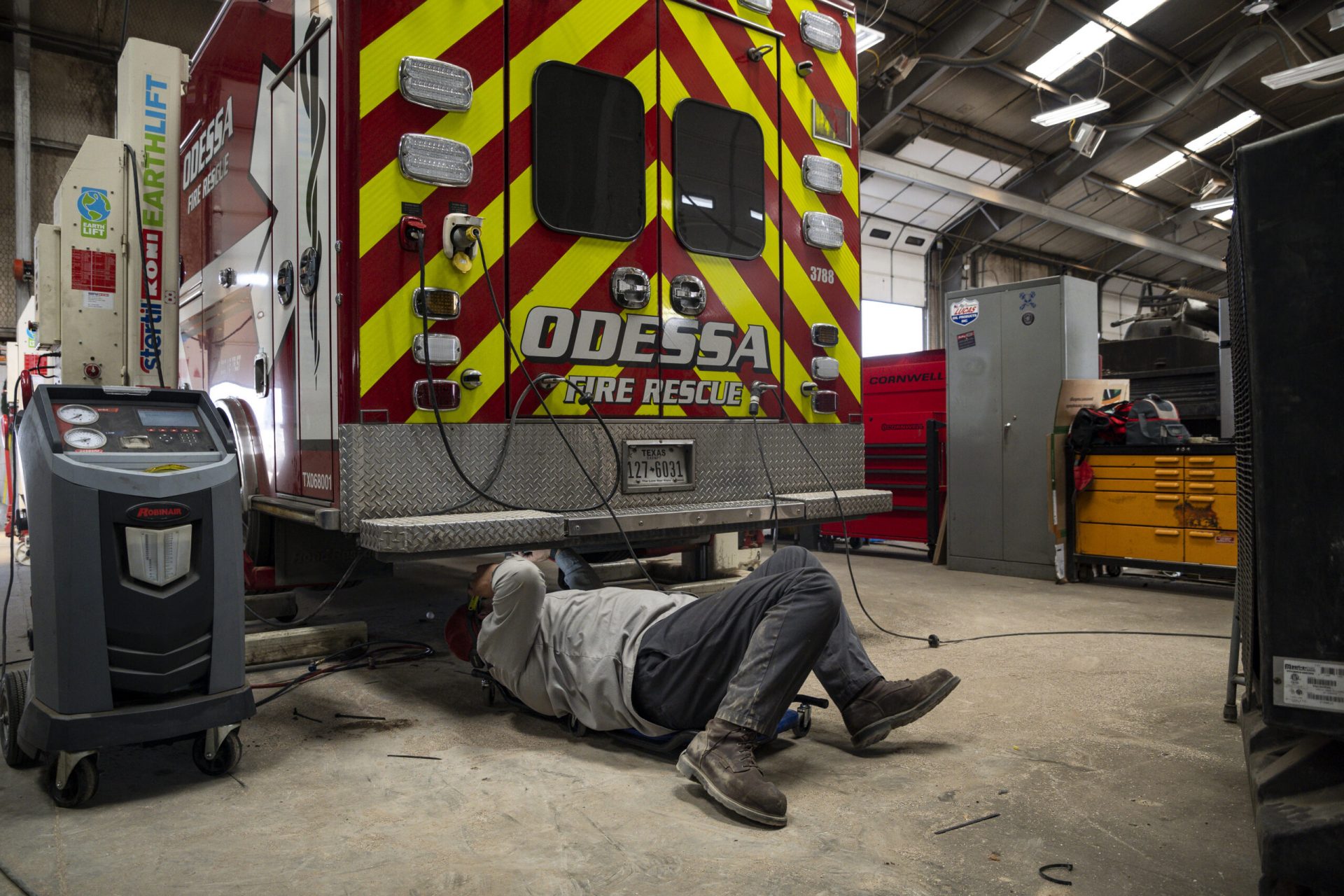They toil in relative obscurity. What they do is oftentimes a dirty, thankless job. But the dozen men and women who make up the City of Odessa’s Equipment Services Department literally keeps the city moving every day.
Equipment Services Garage Manager Eddie Molinar’s staff is responsible for the maintenance and repair of more than 900 city vehicles, which range from riding lawn mowers, ambulances, fire trucks, police cruisers and sanitation trucks.
“We’re responsible for all the city’s vehicles — from the cradle to the grave,” Molinar said. “I’m proud of my staff — they keep the wheels rolling for Odessa.”
His department’s responsibility begins with ordering new vehicles that are delivered “right to our door,” Molinar said. After staff completes any requested modifications, the vehicles are sent to their respective departments.
In addition to performing regular maintenance on city vehicles such as oil and filter changes, replacing tires and spark plugs, staff also tackle repairs like replacing cracked windshields and smashed fenders
“Our biggest customers are the cops,” said Molinar with a good-natured laugh. “They come in with damaged bumpers and dings all the time.”
In fact, many of the city’s vehicles suffer a lot of wear-and-tear due to their high usage, he said. For example, sanitation trucks are also on the road all day long, every day.
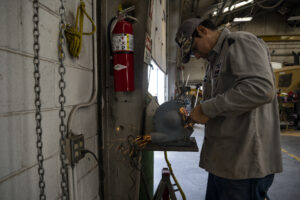
Odessa was a pioneer when it created their own vehicle repair department 40 years ago, Molinar said. It’s more common to see municipalities take care of their own fleet of vehicles.
“It saves money and time,” Molinar said. The in-house system allows the city to keep repair and maintenance problems down and they can get vehicles back on the road quicker.
Employees in the department are cognizant of the role they play in the city’s success.
Regular maintenance upkeep is very important to the life span of city vehicles, which are paid for with taxpayer dollars, lube technician Rebecca Lujan said.
Lujan, and fellow lube technicians Ryan Proffitt and Michael Lynn work on dozens of city vehicles each week.
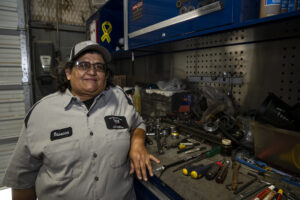
“Changing the oil and filters regularly is necessary if you want the vehicles to last longer,” Lujan said. “It also helps keep vehicles operating efficiently.”
Lujan, who was hired by the city 5 years ago, is the first woman to work in the department since it was created more than 40 years ago.
“It was a little awkward at first,” said Lujan, who earned an associate degree in auto and diesel mechanics from Odessa College. “All the guys just stared at me until they realized I knew what I was doing and they could say things around me without my being offended.”
It’s a small, but close-knit group — which is needed because employees constantly are required to work together — especially when tackling larger vehicles.
Supervisor Bill Smith, who oversees the department’s larger vehicle repairs, said his staff is always working on multiple cars at the same time.
“A lot of times a mechanic will have to stop working on one vehicle while we wait for a part to come in,” Smith said.
It’s not an isolated problem, says Molinar. COVID-19 shut down most manufacturers in 2020, and they are now trying to catch up with demand.
“Getting parts has become an issue, but it’s a nationwide problem,” Molinar said. “It’s a battle to get parts.”

